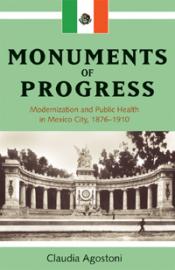Monuments of Progress
Éditeur : University of Calgary Press
ISBN numérique PDF: 9781552384077
Parution : 2003
Catégorisation :
Livres numériques /
Autre /
Autre /
Autre.
Formats disponibles
| Format | Qté. disp. | Prix* | Commander |
|---|---|---|---|
| Numérique PDF Protection filigrane*** |
Illimité | Prix : 34,95 $ |
*Les prix sont en dollars canadien. Taxes et frais de livraison en sus.
***Ce produit est protégé en vertu des droits d'auteurs.
Description
Monuments of Progress: Modernization and Public Health in Mexico City, 1876-1910, Claudia Agostoni examines modernization in Mexico City during the era of Porfirio Díaz. With detailed analyses of the objectives and activities of the Superior Sanitation Council, and, in particular, the work of the sanitary inspectors, Monuments of Progress provides a fresh take on the history of medicine and public health by shifting away from the history of epidemic disease and heroic accounts of medical men and toward looking at public health in a broader social framework. She outlines the relationship between "enlightened" ideals of orderliness and hygiene to Mexican initiatives in public health. The implementation of new health policies and programs were of utmost importance for the symbolic legitimation of Porfirio Díaz's long-lasting regime (1876-1910), which emphasized modernization over individual rights and liberties. Agostoni's unique study builds on a small, but fast-growing, body of literature on the history of public health in Latin America and represents a growing interest in the social and cultural history of public health in this area.























